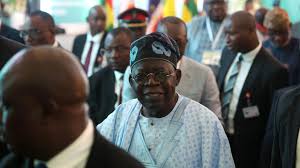By Emmanuel Akanji
Over the recent weeks, subsequent to the emergence of the Coup Junta in our contiguous nation Niger, certain disloyal compatriots and adversaries of the state have opportunely seized upon this situation to assail and disseminate fictitious information and propaganda against the foundations of our democracy and the legitimately elected leader. Their motivation appears rooted in the electoral defeat of their favored candidate in the prior presidential election, which incidentally was acclaimed as one of the most exemplary electoral processes in the country’s history.
These individuals now endeavor to propagate the fallacy that the ECOWAS intervention in Niger implies an inclination toward military confrontation under the leadership of ‘President Bola Ahmed Tinubu.’ This proposition is unequivocally incorrect and betrays a lack of loyalty to the principles of one’s own nation. Such actions only serve to inadvertently bolster the dominion of the coup instigators, allowing them to disregard diplomatic resolutions when confronted.
It remains somewhat obscure to a portion of the populace that the absence of prompt intervention to restore democratic governance in Niger could conceivably engender adverse repercussions for our own nation, Nigeria. Our geographical proximity and the shared border of seven states with Niger accentuate the potential ramifications. Niger, along with some of its regional counterparts, has functioned as a sanctuary for extremist elements such as terrorists, jihadist factions, and militant groups. This prompted the Nigerian government to allocate significant resources, intended for economic advancement, to quell these threats and reinstate stability in regions currently grappling with unrest.
The current absence of timely measures to suppress the coup and reinstate democratic structures portends an era of insecurity for our nation, potentially instigating an influx of refugees seeking refuge on our soil.
Contrary to popular misconceptions, the role of President Bola Ahmed Tinubu as the head of ECOWAS does not empower him to unilaterally enact decisions without the collective accord of fellow member states. An aspect frequently overlooked is that ECOWAS comprises the entirety of fifteen West African nations. As such, it is implausible for the president alone to embark on a military course of action against Niger. Regrettably, certain factions within a specific political group have resorted to utilizing media outlets, social media platforms, and even recruiting local and international influencers to perpetuate fallacious narratives about our beloved country and its duly elected leader, insinuating an imminent military confrontation with Niger. This, however, stands in stark contrast to the reality of the president’s expressed intentions.
Ironically, those who now vocally espouse support for Niger were previously critical of President Muhammad Buhari’s administration, particularly concerning the strategic endeavor to construct a novel transnational railway linking the northern expanse of our nation with Niger. The project was conceived to stimulate cross-border trade, especially considering Niger’s landlocked status and its distinction as the second-largest country by land area in Africa. Their response during that juncture was to propagate spurious claims and engage in vitriolic discourse directed at the prior administration.
In conclusion, it is imperative to acknowledge that the intervention in the political situation in Niger emanates from the collective consensus of ECOWAS member states. This translates to a directive for the deployment of standby military forces and is not a unilateral decision attributable to President Bola Ahmed Tinubu. The time has come to quash these specious propagandist narratives and reassert the supremacy of facts and reason. Patriotism extends beyond the confines of a singular individual or familial sphere; its true essence lies in safeguarding the broader interests of our nation and the aspirations of generations yet to come. In this light, let us assume the mantle of exemplary role models for the emerging cohort.
Emmanuel Akanji is on Twitter as https://twitter.com/Da_Wata_?t=OtMdR1Et-BzN9fZOoAmvbg&s=09

